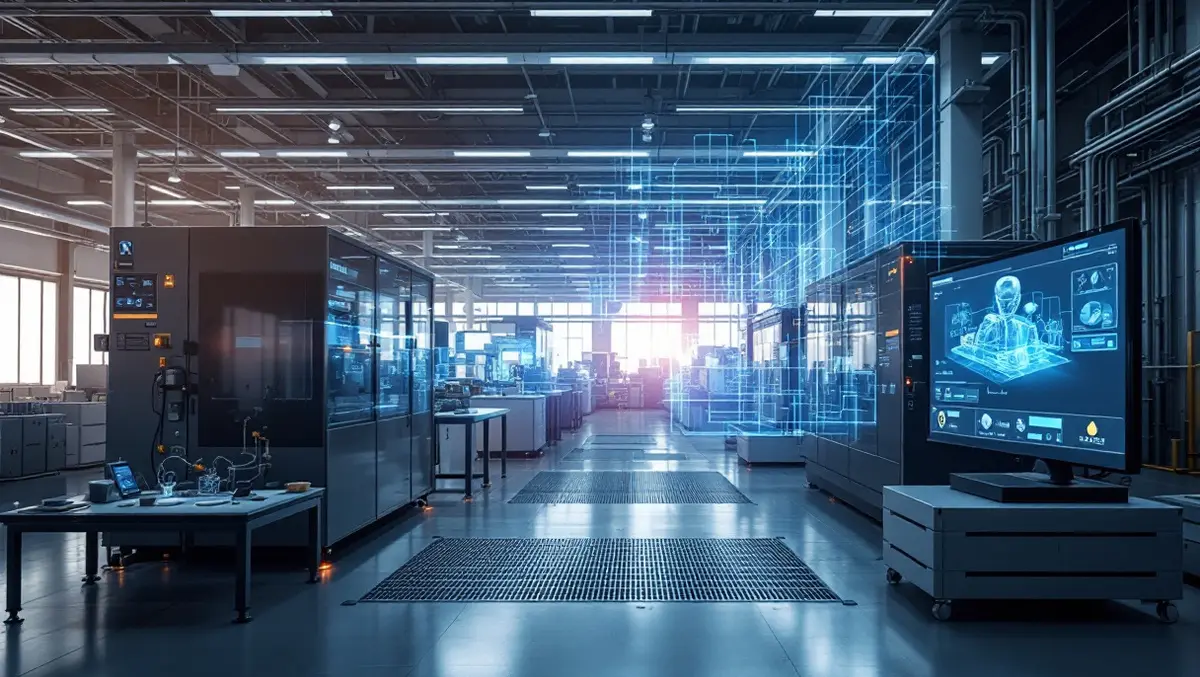
AI-driven digital twins transform manufacturing landscape
Tata Consultancy Services has launched the TCS Digital Twindex report for the manufacturing industry, highlighting how AI-powered digital twins are impacting the sector.
The report was introduced at Hannover Messe 2025 in Germany, a prominent trade fair for industrial technology. It examines how digital twins are reshaping manufacturing by enhancing efficiency, adaptability, and resilience.
Insights were gathered from various industry entities, including Siemens, Schneider Electric, NVIDIA, and JLR, as well as TCS executives and futurists. These findings provide a comprehensive look into the adoption of digital twin technology and the growth of AI-powered ecosystems in the industry.
Anupam Singhal, President – Manufacturing at TCS, said, "We stand at the threshold of a new manufacturing era, driven by digital twins, Generative AI, quantum-powered advancements, and a deep commitment to everything from safety to sustainability. The 'TCS Digital Twindex Report for Future-Ready Manufacturing' encapsulates our vision for building intelligent, future-ready, and adaptive enterprises—redefining industry competitiveness and enriching the lives of citizens and communities around the globe."
The report outlines a strategic framework for manufacturers looking to thrive in a digital twin-driven era of AI and automation. It details how technologies like collaborative robots, agentic AI, physical AI, and edge computing are combining to foster smarter manufacturing ecosystems.
Five key trends identified in the report include the evolution towards Industry 4.5, where AI and automation converge to form anticipatory enterprises, and the role of digital twins as a seamless data fabric for real-time operational insight and resilience.
Rev Lebaredian of NVIDIA highlighted the importance of simulation in developing AI: "Physical and Industrial AI are born in simulation, where they can be tested and validated before being deployed in the real world. By bridging the gap between the digital and physical, the world's heavy industries are paving the way for software-defined manufacturing and intelligent, autonomous systems."
Experts, such as Helenio Gilabert from Schneider Electric, stress that initial digitisation is vital for automation, stating: "If it's not digitised, you cannot automate it. If you cannot automate it, you cannot deploy intelligence on top of it. To fully harness AI and digital twins, start with a clear digitisation strategy—only then can you move toward AI-driven optimisation."
The use of digital twins for virtual testing is pivotal, as Paulina Chmielarz from JLR noted: "Digital twins are a game-changer in our AI journey. They unlock vast amounts of new data, introduce fresh categories of insights, and open entirely new scenarios for exploration and innovation."
Despite the increasing role of AI, the report underscores the continuing importance of human expertise in manufacturing decision-making, cautioning that failure to adopt these technologies risks setting companies back.
Zvi Feuer from Siemens Digital Industries Software depicted a future enhanced by AI: "Imagine a situation within the next decade where AI agents could be helping us make better decisions...help us identify problems before they happen. We can go and fix these problems (and) keep the production running smoothly... We can make sure all the logistics arrive to the right spot at the right time. This is where I see a big, big change."


